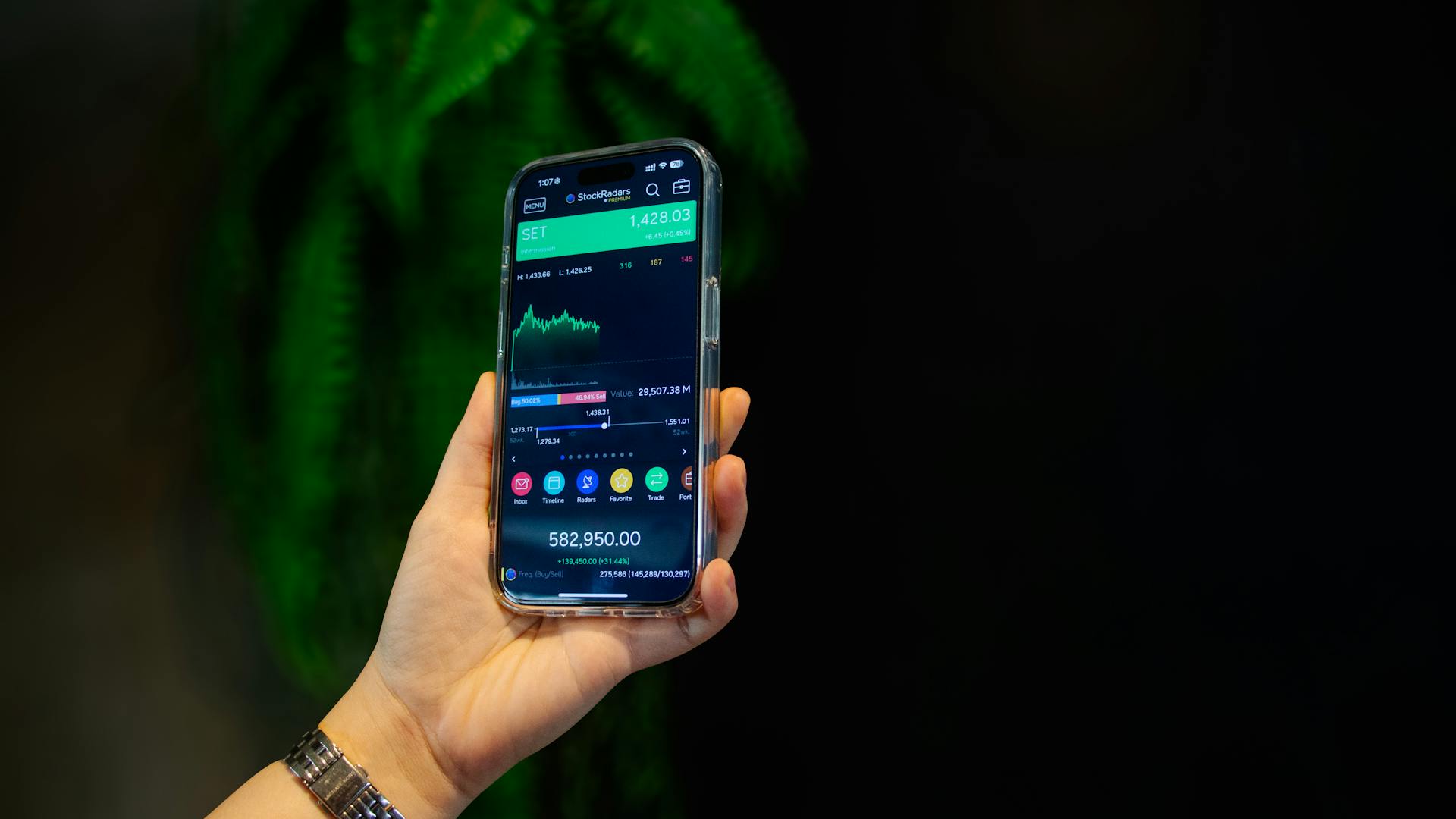
An inter dealer broker (IDB) is a company that acts as a middleman between banks and other financial institutions, buying and selling securities on their behalf.
Their primary role is to facilitate transactions between these institutions, often in large volumes.
IDBs operate within a network of banks and other financial institutions, using their relationships and expertise to execute trades efficiently.
They typically don't hold any inventory of securities themselves, instead acting as a conduit for the transactions.
What is an Inter Dealer Broker?
An Inter Dealer Broker is a financial institution that acts as a middleman between banks and other financial institutions, facilitating the buying and selling of securities such as bonds and stocks.
They operate in the over-the-counter (OTC) market, which means they don't trade on a traditional stock exchange like the New York Stock Exchange (NYSE).
Their primary role is to match buyers and sellers, often in large quantities, and to provide liquidity to the market.
Explore further: Stock Broker Def
Inter Dealer Brokers typically don't hold securities for their own accounts, instead acting solely as agents for their clients.
They are subject to strict regulations, such as those set by the Financial Industry Regulatory Authority (FINRA), to ensure fair and transparent trading practices.
Inter Dealer Brokers charge fees for their services, which can be based on the size and complexity of the trade.
For more insights, see: Internet Banking Inter
Fixed Income Securities and Brokers
In the fixed income markets, inter-dealer brokers (IDBs) play a crucial role as specialized securities companies that facilitate transactions between broker/dealers and dealer banks.
IDBs act as intermediaries, providing a "Petri dish" of liquidity in the bond markets by distributing information and facilitating transactions between dealers and dealer banks worldwide.
IDBs are instrumental to the effectiveness and efficiency of various fixed income markets, including corporate bonds, fixed income derivatives, U.S. Government and Agency, municipal securities, and emerging markets.
Here are the key roles IDBs play in these markets:
- Enhancing price discovery and transparency via communicating dealer interests and transactions
- Providing anonymity and confidentiality via their position in the “middle” of trades
- Facilitating information flow via acting as a central information point
- Facilitating enhanced liquidity via their broad range of contacts
- Improving market efficiency via their rapid access to liquidity
- Lowering costs via their provision of prices to traders without incurring staffing costs
- Faster processing of trades via new technologies
Related to Broker
Fixed income securities are typically sold through a broker, who acts as an intermediary between the investor and the issuer.
A broker can be a bank, investment firm, or online trading platform.
They charge a commission or fee for their services, which can eat into your investment returns.
Brokers often have access to a wide range of fixed income securities, making it easier for you to find the right investment.
They can also provide valuable advice and guidance to help you make informed investment decisions.
However, it's essential to choose a reputable and trustworthy broker to ensure your investments are secure.
Related reading: Stock Broker Average Income
Fixed Income Securities
In the fixed income markets, inter-dealer brokers (IDBs) play a crucial role as specialized securities companies that facilitate transactions between broker/dealers and dealer banks.
IDBs are often referred to as the "least known and understood market participants" in the fixed income market, but their services are essential for market participants to find information, liquidity, and anonymity for their trading activity.
A unique perspective: Exempt Market Dealer
IDBs provide a "Petri dish" of liquidity in the bond markets, creating a nurturing environment where market participants can ascertain information about a given market and eventually facilitate a trade between buyers and sellers.
IDBs are instrumental in the effectiveness and efficiency of various fixed income markets, including corporate bond, fixed income derivatives, U.S. Government and Agency, municipal securities, and emerging markets.
Here are some of the key roles IDBs play in the fixed income markets:
- Enhancing price discovery and transparency via communicating dealer interests and transactions
- Providing anonymity and confidentiality via their position in the “middle” of trades
- Facilitating information flow via acting as a central information point
- Facilitating enhanced liquidity via their broad range of contacts
- Improving market efficiency via their rapid access to liquidity
- Lowering costs via their provision of prices to traders without incurring staffing costs
- Faster processing of trades via new technologies
The Problem
The Inter-Dealer Brokerage (IDB) market is a billion-dollar industry, but it's plagued by significant issues.
The services offered by IDBs are notoriously slow and unreliable. They can be expensive, too.
Calculating and executing multiple deals requires a substantial amount of time and manpower. This can be a major pain point for large-volume traders.
New exchanges, tokens, cryptocurrencies, and platforms all need to be incorporated into the way deals are made. This can be a complex and time-consuming process.
IDBs are ripe for disruption, and that's exactly what's happening.
Frequently Asked Questions
How much do inter dealer brokers make?
Inter dealer brokers can expect to earn an estimated £48,776 per year, with a median salary of £37,810 per year. Discover more about the salary ranges and factors that influence inter dealer broker pay.
Who is the world's largest inter-dealer broker?
ICAP is the world's largest inter-dealer broker, specializing in energy and hard commodities markets. It provides intermediary services to the wholesale segment of these markets.
Featured Images: pexels.com


